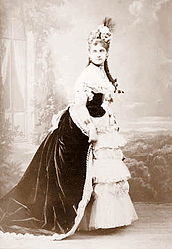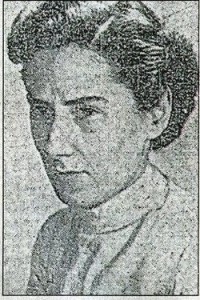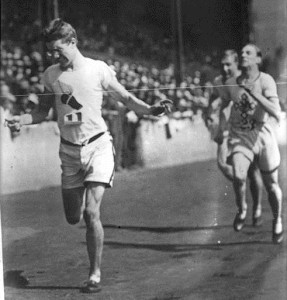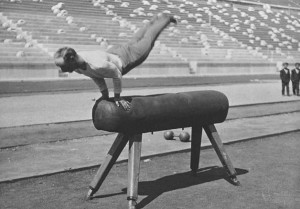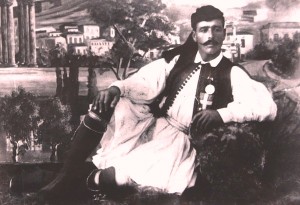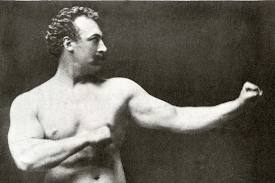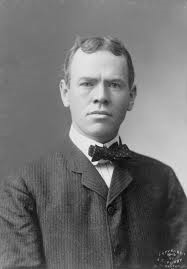With the tragic deaths of Yuliya Balykina, Laurent Vidal and Arnold Peralta, it is perhaps chilling to note that in the years since the London Olympic Games ended we have lost 18 men and women who competed at those Games. One competitor from the Sochi Olympics of 2014 has also passed away.
UPDATED 4 March 2016
Keitani Graham
Micronesia – Wrestling
Died 7 December 2012
Just 4 months after competing in the light-heavyweight section of the Greco-Roman wrestling tournament at London 2012, Keitani Graham suffered a fatal heart attack. He was just 32.
Burry Stander
South Africa – Cycling (Mountain biking)
Died 3 January 2013
An Olympian in Beijing and London, Burry Stander narrowly missed a medal in 2012 after being involved in the five man breakaway that decided the podium positions. He was killed after being hit by a taxi whilst on a training ride.
Andrew Simpson
Great Britain – Sailing
Died 9 May 2013
From amongst the competitors at London 2012 to have passed away, Simpson is the only British Olympic champion. The 2008 gold medallist was a crew member of the Swedish America’s Cup boat, Artemis Racing, when the catamaran capsized whilst training on San Francisco Bay. Simpson was trapped beneath the water line and rescuers were unable to revive him.
Yelena Ivashchenko
Russia – Judo
Died 15 June 2013
A medal favourite at the London Olympics, heavyweight judoka Yelena Ivashchenko was instead eliminated at the quarter final phase. Allied to this a serious leg injury also threatened to end her sporting career and the former European Champion was reportedly suffering from severe depression when she committed suicide by jumping from a 15th story window of her apartment block.
Billy Ward
Australia – Boxing
Died 4 August 2013
A farm boy from rural Queensland, Billy Ward represented Australia in the light-flyweight division at London 2012. Another Olympian to have suffered from depression, he is the 2nd on this list to have committed suicide. At just 20 years of age he is the youngest 2012 Olympian to have passed away.
Abdelrahman El-Trabily
Egypt – Wrestling
Died 16 August 2013
The 2011 African Championship silver medallist, El-Trabily was a graduate of Egypt’s prestigious Al-Azhar University and a teacher of the Quran by profession. He was shot and killed while taking part in a protest march in favour of the ousted President Mohamed Morsi and the Muslim Brotherhood.
Jakkrit Panichpatikum
Thailand – Shooting
Died 19 October 2013
A few months after returning from London Jakkrit Panichpatikum was arrested and charged with the attempted murder of his wife and mother-in-law and numerous other offences. Released on bail, he was sitting in his car when he was shot and killed in a drive-by shooting. His mother-in-law later confessed to have arranged the hit.
Christian López
Guatemala – Weightlifting
Died 6 November 2013
Super-heavyweight weightlifter Christian López competed at both the Beijing and London Olympics for his native Guatemala. The accountancy student passed away in late 2012 after suffering from a severe bout of Pneumonia.
Besik Kudukhov
Russia – Wrestling
Died 29 December 2013
Kudukov was the second medallist from the 2012 Games to have passed away. A 4 time world champion and Olympic medal winner in both 2008 and 2012, Kudukhov lost control over his car on the Kavkaz highway near Armavir and collided with a truck coming from the opposite direction. Kudukhov died at the scene.
Elena Baltacha
Great Britain – Tennis
Died 4 May 2014
A former top 50 player and British number one, Baltacha was diagnosed with an aggressive form of liver cancer in January 2014 and succumbed to the disease five months later.
Camille Muffat
France – Swimming
Died 9 March 2015
A winner of 4 European titles and 4 medals at the World championships, Muffat’s greatest moment came at the London Games when won the gold medal at 400m freestyle. She was voted France’s Sportswoman of the Year for her achievement. Muffat died in a helicopter accident during the filming of a reality show for French television. She was the first London 2012 Olympic champion to pass away.
Alexis Vastine
France – Boxing
Died 9 March 2015
Although he won silver at the European championships and bronze at the Beijing Olympics, Vastine was best known for being desperately unlucky to be on the wrong end of what felt to be two unjust decisions during his Olympic career. Like Muffat he was a victim of the helicopter disaster during filming of a TV show for the TF1 TV network.
Alexis Vastine
Daundre Burnaby
Canada – Athletics
Died 27 March 2015
The Jamaican born 400 m runner competed for Canada in London and at the 2014 Commonwealth Games where he was a semi-finalist. Burnaby drowned in the ocean off St. Kitts in the Caribbean where he was taking part in a training camp with his Canadian team mates.
Trevor Moore
USA – Sailing
Died 25 June 2015
Trevor Moore took an inflatable powerboat out from the US Sailing Centre in Miami on the morning of June. The boat was found drifting later the same day with no sign of Moore but with his belongings still inside. US Coastguard and Florida authorities searched for him but no trace has ever been found.
Yuliya Balykina
Belarus – Athletics
Died 28 October 2015
Yuliya Balykina competed in the sprint relay in London but her career virtually ended shortly afterwards when she received a two year ban for a doping offence. After her ban ended in summer 2015 she began to pursue a career as a personal trainer.
On the 28 October 2015 she suddenly disappeared and was never seen alive again. Three weeks later her dead body was found concealed in woodlands outside Minsk. An ex-boyfriend is currently in jail awaiting trial for her murder.
Laurent Vidal
France – Triathlon
10 November 2015
A consistent performer on the world scene, Vidal headed the ITU rankings in mid 2012 and was one of the medal favourites for the London Olympics. He finished the race in 5th position which was an improvement on his 36th place finish in 2008.
In 2014 Vidal suffered a heart attack while doing swim training and had to be placed in an induced coma for him to survive, which ended his triathlon career. Unfortunately, only one year later, Vidal sustained another cardiac arrest and died at age 31. At the time of his death, he was engaged to New Zealander and world-class triathlete Andrea Hewitt.
Arnold Peralta
Honduras – Football
10 December 2015
A right-sided midfielder, Peralta started his career with Honduran side C.D.S. Vida before joining Scottish team Glasgow Rangers in 2013 and helped his new team win the Scottish League One in 2013-14. He returned to his home country in 2015 to join Olimpia. Five days after Olimpia were defeated in the semi-finals of the national championships Peralta was gunned down by unknown assailants as he walked through in a shopping mall in his home town.
Sarah Outhwaite-Tait
Australia – Rowing
3 March 2016
After reaching finals at both the 2004 and 2008 Olympics the height of Sarah Tait’s Olympic career came at London 2012 when she won the silver medal as part of Australia’s coxless pair. In 2014 she was diagnosed with the cervical cancer that eventually claimed her life.
In addition, one competitor from the Sochi Olympics has died.
Nikolay Khrenkov
Russia – Bobsleigh
Died 2 June 2014
Less than four months after he was part of the Russian second string crew in Sochi, Nikolay Khrenkov was killed when his car was involved in a head-on collision near the town of Krasnoyarsk.
Two others who had a role at the London Olympics are also not with us anymore.
Mark Sutton
Died 14 August 2013
The stuntman who parachuted from a helicopter above the stadium during the opening ceremony dressed as James Bond. He died in a wing suit flying accident in the Swiss alps.
Sergei Ovchinnikov
Died 29 August 2012
Less than three weeks after the end of the 2012 Games, Russian volleyball coach Sergei Ovchinnikov committed suicide in his hotel room in Croatia
The figures from the previous Olympics are as follows;
2008 Olympians who died before the London Games = 15
2004 Olympians who died before the Beijing Games = 19
